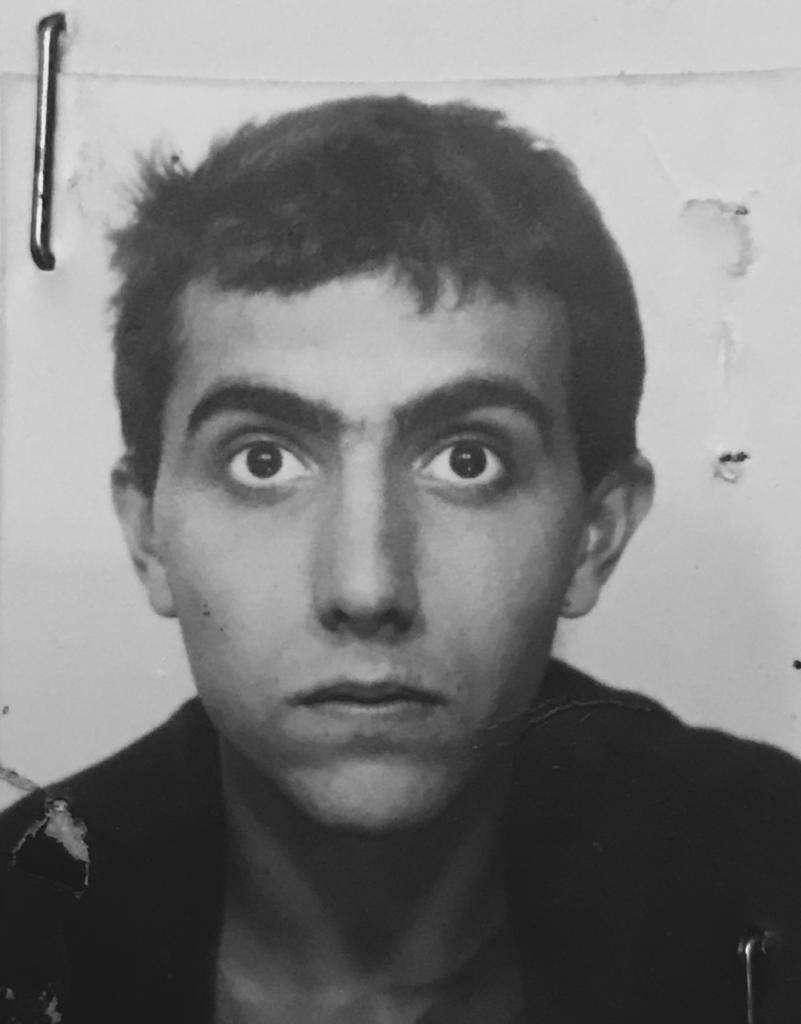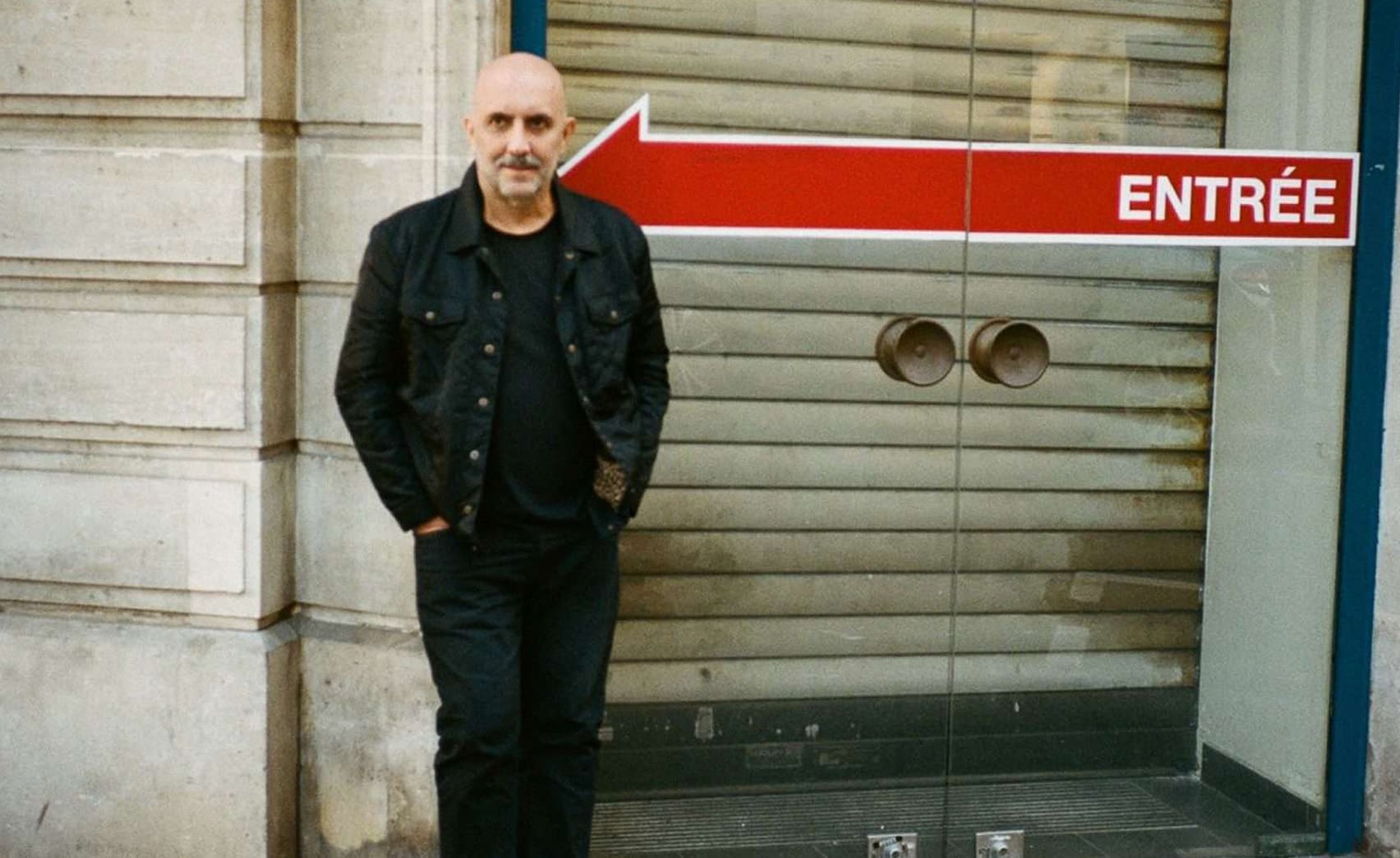
Riots are apparently unsettling the French capital, but as we sit at our hotel in the Pigalle district, the day is quiet (protests are on hold until Thursdays), and Gaspar Noé has confirmed he is walking up from his office nearby. But when he calls, there’s a slight problem. “Um, so I’m stuck in a lift,” he says, “It’s like a movie!” One of his fellow inmates was a man practising Ramadan: “This guy was freaking out. He was on the phone to his friend, and the friend was accusing him of having immoral thoughts, that his fast was now broken.” You can only imagine that kind of pressure, he explains, when he finally arrives.
The first thing that strikes us is: this sounds like a great premise for a Gapar Noé film. The second is that, if any filmmaker could be accused of immoral thoughts, it’s Gaspar himself. Between Love, Enter the Void, Climax, Irreversible, and Vortex, the Argentine-French auteur has built a body of work that touches on the darker side of our psychology—coming to life as though peeking, voyeuristically, through a neon kaleidoscope of taboo, trauma, and sexual experimentation. But what about Gaspar has spurred his obsession with living on the edge his entire life? His father, he notes, the great Argentine artist Luis Felipé Noé, would work outside of the canvas, seeking new ways to challenge his artform. “He’s ninety and he is writing a book on Chaos,” Gaspar smiles, proudly, and perhaps there’s more than a hint of that hereditary hunger for madness in his own work.
This conversation attempts to uncover some of what makes Gaspar the filmmaker he is—an artist with a longing to live on the wild side, and portray the drama of it in his cinema.
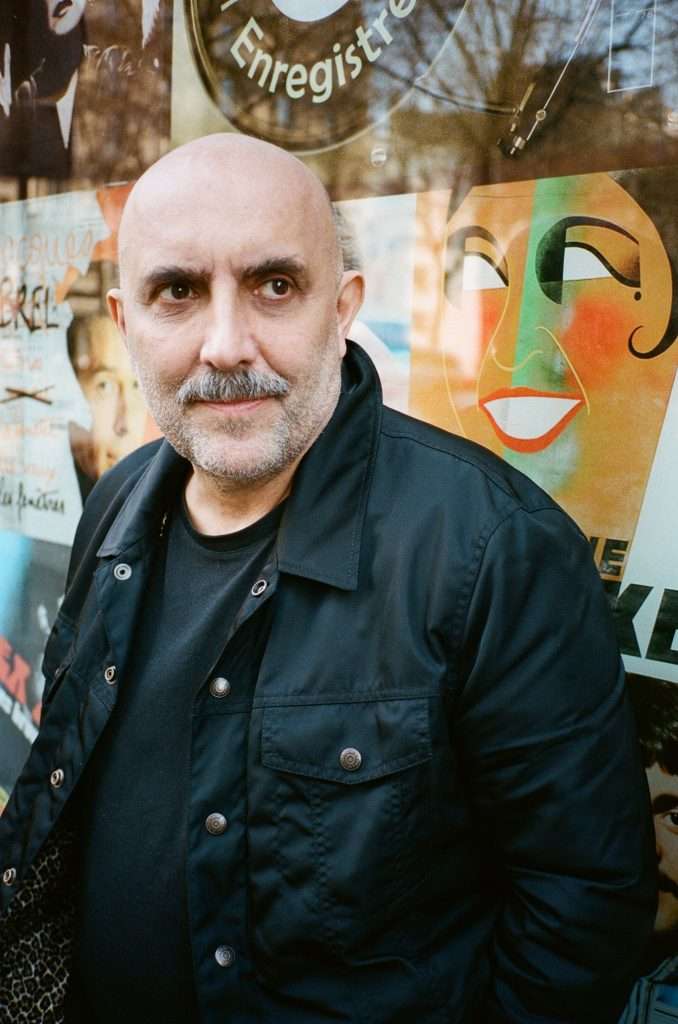
There’s riots across Paris. Do you find a level of beauty in the chaos from an artistic point of view?
The only real chaos I’ve seen in my life was at Berghain [the infamous Berlin nightclub]. I spent one night there and it went weird because everybody was giving me different powders. I thought it was coke but it was something else, probably ketamine or something stronger. There are so many new party substances around these days. And it was my birthday, so I had to take everything that was offered to me because I was known as the director of Enter The Void. So I mixed all these things that shouldn’t be mixed with huge amounts of alcohol. In the end, that whole night was a kind of live version of Climax.
Did that night in Berghain inspire any scenes in your films? That place is crazy, especially if you’re wasted.
Yes. It totally inspired all the second half of Climax. The problem is that if you’re surrounded by people who are drunk and you’re not drunk, you just hate them all. The only way to listen to people who are drunk is to get drunk yourself. Otherwise you simply want to kill them. And if you’re surrounded by young people who are wasted, then yes it’s much better to be wasted. But there are limits to it.
On Sobriety and Death
I’ve read that you’re sober right now, but do you miss it? Do you look back on those days fondly or recklessly?
I will probably go back to my old drug and alcohol behaviours one day. But I’m presently trying to play it soft, mainly because three years ago I had a brain haemorrhage and was told, “be very careful and avoid hard substances”. So I’m not supposed to take any chemicals that speed my heart rate. I stopped doing ecstasy. I stopped doing MDMA. I’ll love them forever. But I don’t miss coke, speed, poppers or tobacco at all.
How did that change your outlook on death as well?
I was very close to death, but I didn’t have an astral vision. The only spiritual vision that I had when I was in the hospital was due to the amounts of morphine I was given. I was very high on morphine, and five days after the accident they were playing Gravity on TV, on a very small TV screen on the other side of the room. And while watching Gravity high on morphine, I had one of the best psychedelic and cinematic experiences of my life. I was alone in my room and I felt like I was in a capsule, fighting for my survival among the planets. And thanks to that film I felt I was like Sandra Bullock, allowed to come back to our sweet homeland, planet Earth…For most people, the closer you get to death the more it becomes evident there’s nothing at all. It’s just like hitting a wall. Then there is nothing left. Nothing. All gone. Only void.
Did it confirm to you that there’s nothing spiritual to you about this world, and that we’re all on this big trip? Even the concept of the astral plane is quite a spiritual concept.
I believe there are other dimensions that we don’t know. Sometimes I’m surprised about the encrypted messages that we can read in our dreams. I’m surprised by the coincidences. But I don’t believe in life after death the way the religions tell it. Not even the Buddhist version… The mystery is not on the side of whether there is life after death. The real mystery is about life before death. Like, what the fuck is all this we are experiencing? Each morning when you wake up you reconnect with what people call life, and it’s surprising that there’s still all these things going on like that around you. I’m surprised every morning when I wake up that, after a few hours in the nothingness, I’m getting back into this repetitive and collective daydream…
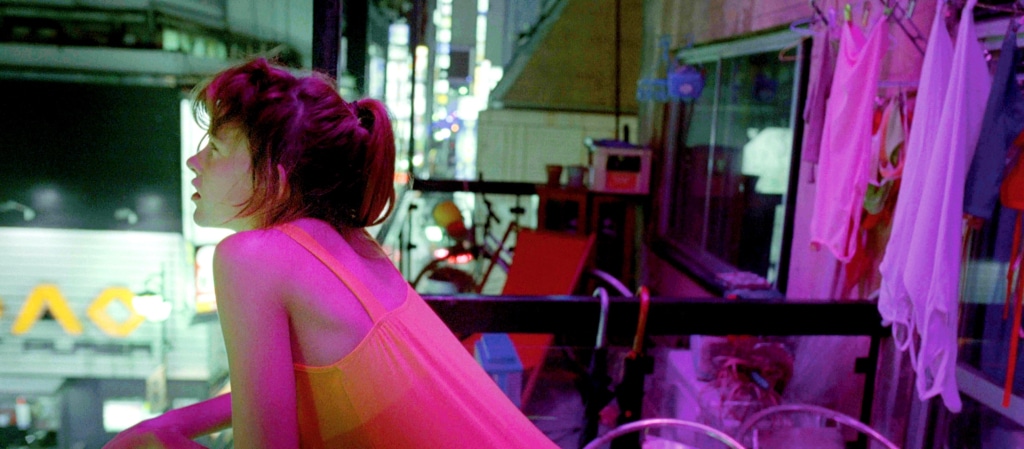
Would you say that you have an addictive personality?
Yes, but after a while you get bored of your chosen addictions. You can be addicted to a person, fall madly in love and spend months or years together and then, from one day to another, the magic is gone. And the same thing happens with drugs, you suddenly want to try something else because there are so many different kinds of experiences in life that you wouldn’t want to miss. So I’m more keen to try new substances…There’s one called 2TC7. They say it’s a very intellectual drug. Some call it the philosopher’s drug. Supposedly, it opens wider perspectives on how your own brain works.
Do you feel like more filmmakers should be experimenting with drugs?
You have people who like having control and people who like losing control. I like both. But I’ve always played it rather safe with drugs, because I have friends who became very irrational when they started experiencing ayahuasca and they couldn’t stop. And the same with LSD, and other new substances which are now on the market. Hopefully some people have a calm relationship with psychedelics. I’m curious about visions, but once you’ve tried many different things you can tell when a bad trip is coming. It’s better to be aware there is always a hidden danger in every drug, whether it’s natural or chemical.
Where was the urge to experiment, not just in your substances but in your cinema, where did that come from? I know your father is an artist…
My old and beloved father is still a major artist! He said he once tried LSD in New York in the sixties and that it didn’t affect his brain. He believes that, but I don’t believe him, unless he was underdosed. I think he wanted to pretend that he had control over the substance. In my case, I don’t feel like I’ve been taking too many risks by taking chemicals with my friends. The real dangers for a filmmaker are of a different nature. Sometimes you can put yourself in huge financial issues, and having to stop the movie before completion, or paying back your debts for ten years. Or seeing your love story fall into pieces. Or the romantic danger of considering death as a solution to your supposed failure. Those are risks that in this profession can happen. But if you’re simply insulted by film critics that’s no big issue at all. It can even be very good news.
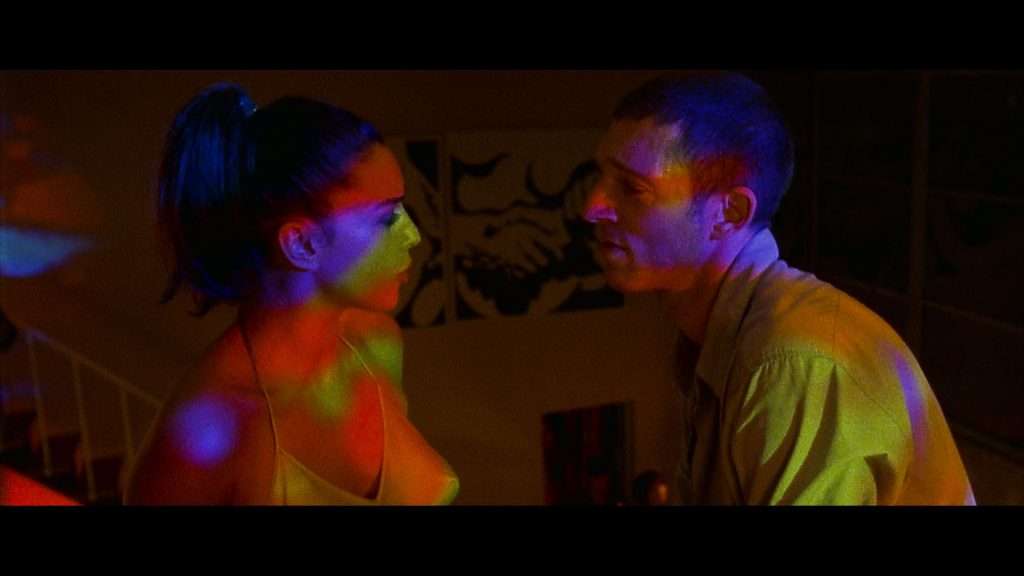
On the opinion of others.
You enjoy it.
I simply don’t care. Nowadays many young people are afraid of being disliked. It’s a generational thing. It was an achievement for my generation to be disliked—to be hated. When you start making films, people can complain about your presence, but once you’ve done like seven movies the same people will accept that you exist. Nowadays nobody is shocked anymore by Irreversible. It’s part of the world catalogue of classics of cult cinema. Even for Irreversible, in its new chronological cut, which was released a few months ago in the States, the press was mostly good. In 2002, most reviews were insisting on the fact that Vincent Cassel’s character was homophobic, and some suggested that I was probably a nazi homophobe too. But in 2023, because the movie was re-released by distributors specialised in LGBTQ cinema, there was not one article saying that the movie or the character was homophobic.
Movies have life don’t they? You never know how they’ll develop, from the point that they were out there to now.
It was a miracle that the film could have been financed, but it was not a miracle that I had the idea…I had seen movies like Deliverance or Taxi Driver, and I had seen La Haine with Vincent Cassel playing the lead.
Brutal films.
I was into brutal films. So, the movie happened because Vincent Cassel and Monica Bellucci were willing to play in it. So the financing happened without even having a script. And no one expected such a movie in 2002.
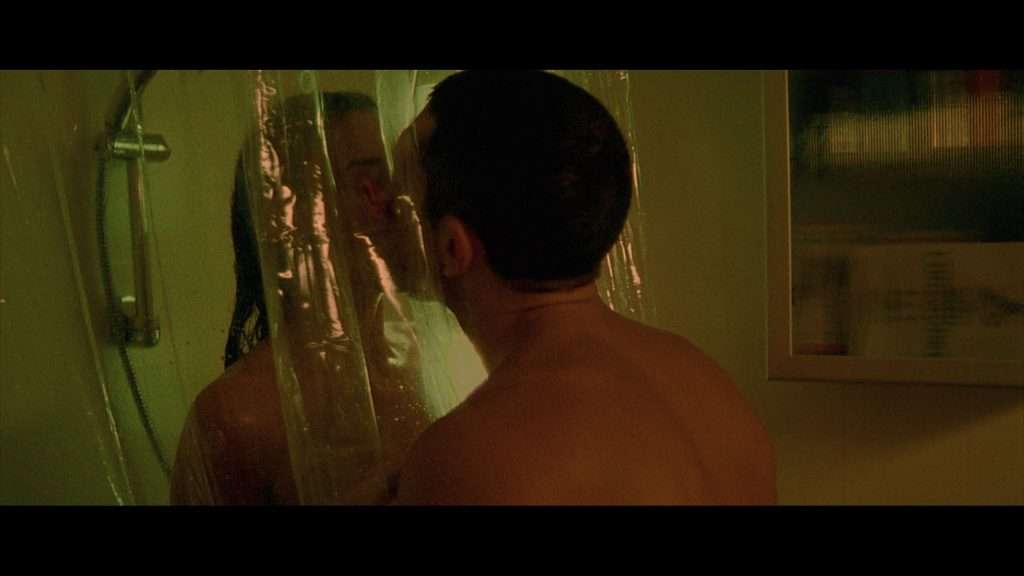
I think all of your films appeal to different people individually. I have friends who love Enter The Void, but have never seen Irreversible.
I know many guys, even working in film production, who don’t mind watching films like Cannibal Holocaust, Pasolini’s Salo or A Serbian Film, and who are afraid of seeing Vortex. Because they have parents who are old, they suppose it’s too violent to watch senile people losing their brains on a screen…[laughs]. Yes, some guys in Paris, with the hardest guts when it comes to cinema, simply refuse to see Vortex. Not because they think it’s gentle but because they think it’s too trashy and too close to the real horrors of life.
But it’s a very honest film.
Yes, it’s about ageing and death.
Why not have a happy ending to your films?
The kind of happy ending in Vortex is that the parents die, and that during the following months the son will be able to sell their flat and buy lots of smack or crack. He’ll probably end up being arrested and his little kid will be put in a foster home.
And that’s a happy ending to you?
It’s just a logical ending after the official ending of the movie.
On the Meaning of it all
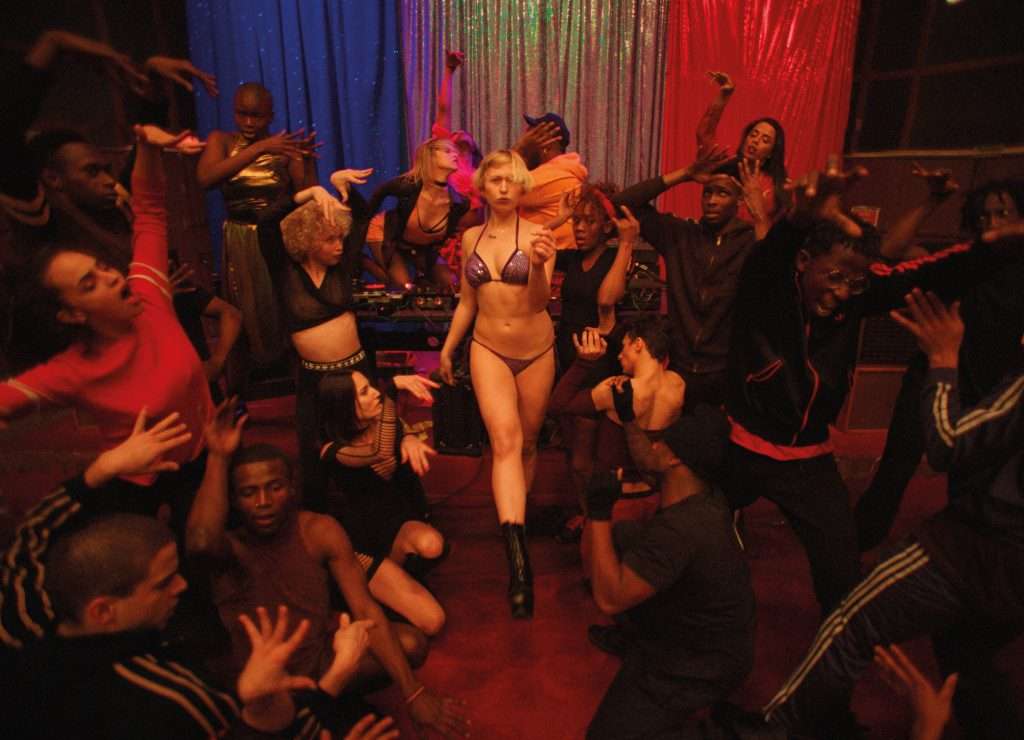
With Climax it feels like there’s something almost political you’re trying to say, about race in France in particular—the flag draped behind the DJ decks.
Actually, when I started thinking about the movie I wanted to mix street dances like vogueing, krumping or whacking. And mostly the best dancers for those kinds of dances are black or immigrants, etc. It was essentially the quality of the dancers that made the rainbow of the skins that you see on screen. That’s why we ended up having a third of the characters black, another third mixed. And just a third who were white. It was all unintentional. It’s because I was picking the dancers according to their dancing skills and their charisma. They weren’t actors.
And the fact that it’s a mixed team dancing different types of dances makes it visually richer. Also most of the voguers were gay or transgender. So even in terms of sexual preference our whole team of dancers were very mixed.
The French flag was not an initial idea. It was just that they were going to shoot the choreography and had to choose between three different drapes behind the DJ, and there was one that was red and another was grey and the last one blue…I thought it would be a funny idea, the coincidence then became something intentional. I thought it would be funny and kept it.
So it’s humour that drives these decisions…
Yeah, but I’m not sending messages.
Did any of that come from a feeling that you’re Argentine and French?
I feel pity for all those, directors or not, who desperately feel the need to be part of a larger family, who say “I’m American”, “I’m French”, “I’m Russian”, “I’m Catholic”, whatever…I just feel like I’m myself. And when people ask me where I come from sometimes I’ll just answer “from my mother’s pussy!” It’s the only truth I know. Hopefully I look a bit like my father…
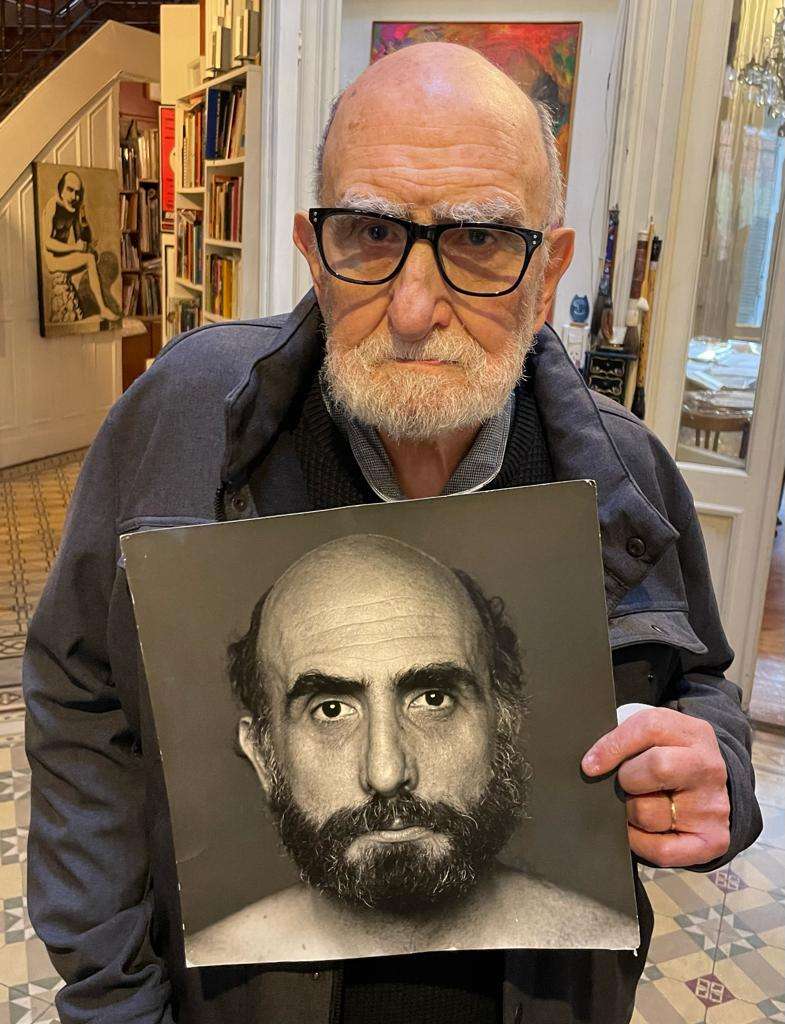
Your father is a great intellectual —
He’s turning ninety now. He’s like the rockstar of painting in Buenos Aires.
On Luis Felipé Noé
He’s someone who has a critical eye of the arts. Does he ever watch your films and discuss them with you?
Yes he’s seen all of them, and I was a bit worried when I showed him Vortex because my mother had Alzheimer’s and I didn’t want him to think it was a movie about our family story. Also, I have a sister and there’s no sister in the movie. There are situations that I lived with my mother and you can see in the movie that they are almost copy and pasted, but my father was very faithful to her when she lost her mind. And he’s not like the character of Dario Argento, desperate to see his lover. But I was worried that the movie would bring to my father sad memories of when we lost my mother, mentally and then physically.
But there’s another similarity between my father and Dario Argento in the movie. My father enjoys writing, and he just finished an eight-hundred-page book on ‘chaos’. A philosophical essay on chaos. For three months he wouldn’t move from his desk, writing relentlessly just like Dario in the movie. And when my father was writing this last book, my niece would say “oh it seems like he’s playing Dario Argento…”
It’s so interesting that he wrote a book on chaos…
Yes, he’s obsessed with that, and his paintings are rather chaotic, so if I’m interested in chaotic things he’s very proud of me.
Did he have a lot of books around the house as well?
Yeah there are books everywhere and paintings everywhere. As a kid, I looked at what my father did and admired how he would paint outside his canvas, creating larger painted structures around them. And years later I also tried to play with the regular limits of my own artistic frame, I mean by telling a story backwards, filming in 3D, or using a split screen.
I feel like every one of your films, what’s interesting about them but what also might be quite difficult when you’re thinking about the next film, is that you’ve got the typography, but you’re always trying something different with each film. You’re always trying to find a new approach.
The thing is, you just don’t want to get bored, you want to have fun trying something that you haven’t tried before. But I often repeat myself. For example when I made Climax, many people said it was a gimmick, there’s a pregnant woman who gets punched in the belly like in I Stand Alone. And when I made Climax, the title credits look a bit like the colourful credits of Enter the Void. But concerning its narrative, I wanted to shoot a movie chronologically, not knowing how it was going to end. For example I didn’t know what most characters in Climax would exactly end up doing during the second part of the film. I was just asking them who they wanted to have sex with during the last scenes…[laughs]. We kind of improvised the plot all together. And even much earlier, on the third day of shooting I suddenly asked two dancers “do you want to play the brother and the sister?” and a few days later I surprised them by asking “…would you mind playing it a bit more incestuous?”
So these are people who have never acted before?
The only people who had acted before were Sofia Boutella, who plays the choreographer, and Souheila Jacob who plays the pregnant dancer.
Where do you find that trust from your cast?
People trust me because most of the people I work with have seen my previous films. They like them, they dislike them, but at the same time they can tell that the movies are more viable than most movies around so they don’t think their work will end up in the garbage can. Also most people are keen to be in movies. If you propose to people around you, to any bartender in this hotel, half of them would say “Yes I’m ready…how should I dress?”
But sometimes my “transgressive” reputation is tricky: For example when I was preparing for Love, some people were thinking I was doing a movie with sexual aggressions like Irreversible. And when I was doing Climax some people were worried I was going to ask them to do explicit sex scenes.
The day I went to try and convince Dario Argento to play in Vortex, I brought the only movie of mine he hadn’t seen which was Love, so I wanted to discuss with him this sad new project about an old couple and I said “I just brought you my previous film called Love.” And he said “Yeah, lets watch it now,” so before we even discussed Vortex, we were already sitting on the sofa watching Love, and he was kind of worried that I would want him to be in these types of intimate love scenes.
Why Dario Argento?
I can relate to him because he’s very charismatic, I also see in his behaviour an extension of me and my father. The Italians and Argentinians are very similar, the way they talk with their hands. Dario’s always been lovely to me. I called Asia [Argento] to ask her if her father would potentially accept the role, and he accepted, also partly because I didn’t give him any lines to learn. He could create his own part, direct himself.
Mostly when you make a movie you don’t go casting according to which actor or actress is successful or how many awards they’ve won. That’s the last thing you think about. You think about who will fit with the character. Sometimes you have a precise person in mind, from real life, someone who is exactly like the character you are looking for, and you end up proposing a non-professional to be in the film. Sometimes you can tell that an actor can play that part just by changing the way he dresses or talks.
Dario Argento was very confident and professional because he’s been directing actors his whole life. He knows how it goes. When we did one take, he would know exactly where he should be putting his feet. He knows what tracking and pace is. And when I would ask him to keep fifteen seconds of silence, he knows fifteen seconds should feel like.
On the Persona of Gaspar Noé
Is that something you would ever do? Perform in front of the camera.
I’ve been asked twice this year. I recently declined to play in one movie because it was a period movie and I had to dress up and I thought “I’m going to be a guy working in a 19th century circus,” so I didn’t do it. Then I heard that the movie was really good. On the other hand, a close friend asked me to play myself in a scene with Michel Houellebecq. It was a fictional version of me, improvising a moment with Houellebecq. It was very easy to play ‘Gaspar Noe’.
If you asked someone to play Gaspar Noé, what prompts would you give them? Have a great moustache?
I would say that I mumble. Although now, I’m talking loudly and clearly because I know you’ll have to transcribe all of this.
We would love to know what projects you’re working on at the minute. Is there anything you’ve got planned?
I’m doing the restoration of my first movies, Carne and I Stand Alone. They’re a diptych. So you watch the closing credits of the short Carne, then the other feature movie starts. It’s like when you have a concert and you have the supporting act, then the main band. But here, it’s the same story, following the same characters, so the diptych will be like a transcended longer version of I Stand Alone.
What was it like re-visiting those first few films?
There’s a long voiceover in I Stand Alone, and the voiceover is so dirty in its words, that many people might be surprised today. The main character is desperate. And because he’s desperate he becomes angry, and sexist and racist and homophobic. He hates old people, fat people, wealthy people as he hates foreigners or even kids. It’s all scum, human scum, around him. Blaming the whole world is his only issue to respect himself.
Are you curious to see how people will react?
Well, when people will see it now they won’t see it as a new movie but as an old movie. So they won’t accuse me of a crime I committed twenty-five years ago. People accuse you when the crime is fresh. I always say “Fritz Lang isn’t a paedophile because he made M.” I made a movie about a desperate jobless horse meat butcher but it’s not because I made a movie about him that I am him. Although, I can fully understand large parts of his psychology.
Looking at all the films you’ve made, do you feel they fit into a bigger body of work. Do you see them as one body of work?
I’ve been lucky to do movies that I care about, I never did a movie that was a project brought to me by someone else, a producer or an actor. I recognize myself in every movie I’ve done until now. Probably tomorrow I’ll accept an invitation to shoot an episode of a TV show or a remake, and probably one day I’ll end up with evil producers who will try fighting against my director’s cut. Until now, I’ve been able to do what I wanted. The more money you get to do a movie, the more people want to be involved in your artistic process trying to make it a ‘commercial success’.
Is there another feature in mind?
I haven’t any precise feature project yet, but some subjects in mind. Nevertheless, I won’t talk about them.
If you make a movie about the elevator, then we’ll know.
